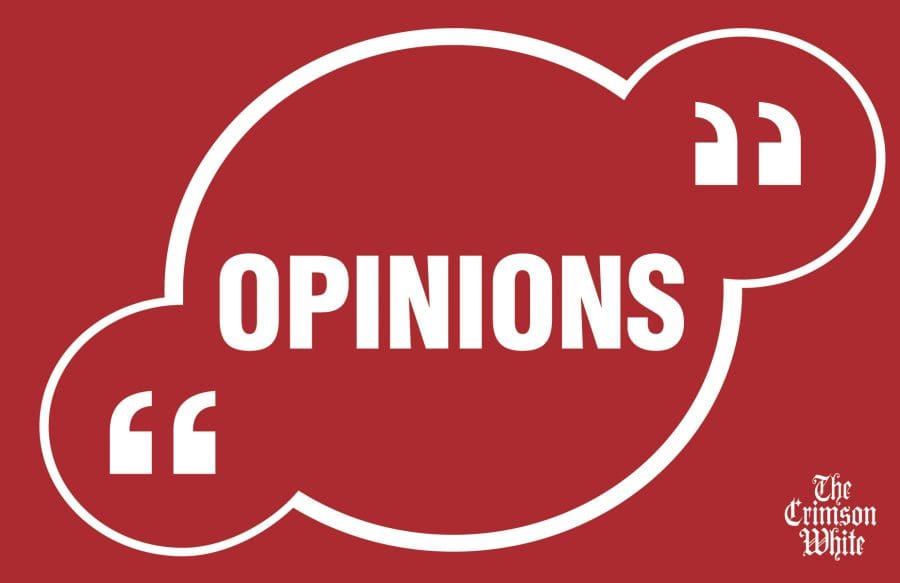Opinion | The Death Penalty: What’s the real cost?
March 24, 2021
Brandon Bernard died on a Thursday.
On Dec. 10, 2020, in Terre Haute, Indiana, an employee of the federal government gave Bernard a lethal injection that ended his life. He was 40 years old.
About 24 hours later, 56-year-old Alfred Bourgeois’s life was also ended by the federal government.
Both executions revived a longstanding debate over America’s use of the death penalty, and specifically the reinstatement of federal executions by the Trump administration in 2019.
The death penalty debate is complex. Compelling arguments exist on both sides of the debate—but those who disavow the death penalty have a particularly wide range of reasons to choose from. Institutional racism, violations of the Eighth Amendment, repeated convictions of innocent Americans and other flaws in the justice system have been repeatedly highlighted by staunch anti-death penalty advocates over the years.
However, one piece of this discourse—which always seems to be left in the shadows—has the potential to tip the scales towards capital punishment’s abolition in America for good.
A 2003 legislative audit in Kansas found a 70% differential between the cost of a death penalty case and a comparable non-death penalty case. The median death penalty case cost $1.26 million. The median non-death penalty case only cost $740,000.
Tennessee death penalty trials cost 48% more than life imprisonment trials on average. Maryland death penalty cases cost $3 million on average, three times more than non-death penalty cases.
As of 2008, California’s correctional system cost $137 million each year. It would cost $11.5 million without the death penalty.
Do these numbers seem fake? They are so mind-boggling that any reasonable person would be justified in questioning their authenticity. Unfortunately, they are not fantasy.
The death penalty is too controversial to warrant such ridiculous government spending.
The morality of capital punishment can be legitimately debated in the marketplace of ideas, but its more-than-excessive price tag cannot. We live in a country where notions of government-funded healthcare or the elimination of federal student loans are scoffed at, yet we don’t even blink an eye when spending exorbitant amounts of taxpayer money on a punishment that 60% of Americans believe is less appropriate than life imprisonment. So many of our legislators claim to be fighting tooth-and-nail for “downsizing” the government, decreasing the national debt and reducing unnecessary spending, but somehow they fail to notice the clearly excessive spending related to the death penalty.
Sure, debates over state and federal appropriations might not be as intellectually titillating as philosophical struggles over questions of death, justice and morality, but death row will not wait patiently for a modern-day Aristotle to come along and solve our current dilemma. As the years go by, more and more inmates are executed by our government while we continue to reach an effective stalemate on this issue—even as more and more states slowly outlaw the practice. If we want to unlock the key to resolving this debate in any timely manner, we need only follow the money trail.
To put this concept in further context, Senator Rand Paul (R-KY) recently denounced a December COVID-19 relief bill as “monstrous,” a “monstrosity” and a “‘deficits-don’t-matter’ disaster.” The Senator decries additions to the national debt when they involve providing necessary financial relief to struggling families during a global pandemic, yet he and his colleagues continue to fund numerous bloated federal enterprises without any gripes. That includes the controversial executions of Americans like Brandon Bernard.
Maybe similar outrage does not arise when discussing appropriations for the death penalty because the pharmaceutical industry and prison-industrial complex have each spent millions of dollars lobbying our federal government over the past 25 years.
In a country where lawmakers seem to hear the sounds of crinkling dollar bills more clearly than their own internal voices of morality, maybe it is time we begin speaking their language. The death penalty is a good place to start.



















![UPDATE | New details have emerged about U.S. Immigration and Customs Enforcement’s arrest of doctoral student Alireza Doroudi.
— Yesterday, a University spokesperson confirmed that a doctoral student was arrested by federal immigration authorities, without providing the student’s name, declining to share specific information due to federal privacy laws.
“International students studying at the University are valued members of the campus community, and International Student and Scholar Services is available to assist international students who have questions,” said Alex House, associate director of media relations for the University. “UA has and will continue to follow all immigration laws and cooperate with federal authorities.”
— An employee at the Pickens County Jail confirmed that Doroudi is being held there, adding that the facility typically sends ICE detainees to a detention facility in Louisiana.
— The Department of Homeland Security provided a statement about Doroudi’s arrest:
“ICE HSI [Homeland Security Investigations] made this arrest in accordance with the State Department’s revocation of Doroudi’s student visa. This individual posed significant national security concerns,” a DHS spokesperson said. The statement did not provide details about why it claimed Doroudi posed national security concerns.
— Students for Justice in Palestine at UA, formerly known as Bama Students for Palestine, said in a statement on social media Thursday that it was “outraged” to learn of his detainment and that he "was not involved, nor has he ever been involved in any organizing or protests related to our organization."
This is a developing story and will continue to be updated. Read the updates at the link in our bio.](https://scontent-iad3-1.cdninstagram.com/v/t51.75761-15/486944895_18492822301025566_6944596333023050206_n.jpg?stp=dst-jpg_e35_tt6&_nc_cat=107&ccb=1-7&_nc_sid=18de74&_nc_ohc=hnp26Pzwsm0Q7kNvgH09W0S&_nc_oc=AdmIBEMuR_aRgaBd00Hlot3E59Vj_4lQyCImLLgp8CLdbxpSmLU25dhU_MO_Zul-qcU&_nc_zt=23&_nc_ht=scontent-iad3-1.cdninstagram.com&edm=AM6HXa8EAAAA&_nc_gid=YBEq6-Vs4rWbY-dRMs1BXw&oh=00_AYHnYcN7EoIVRd382z8S3q637qPSQr0EC8NJdp-tCJWKbA&oe=67F30BB0)

